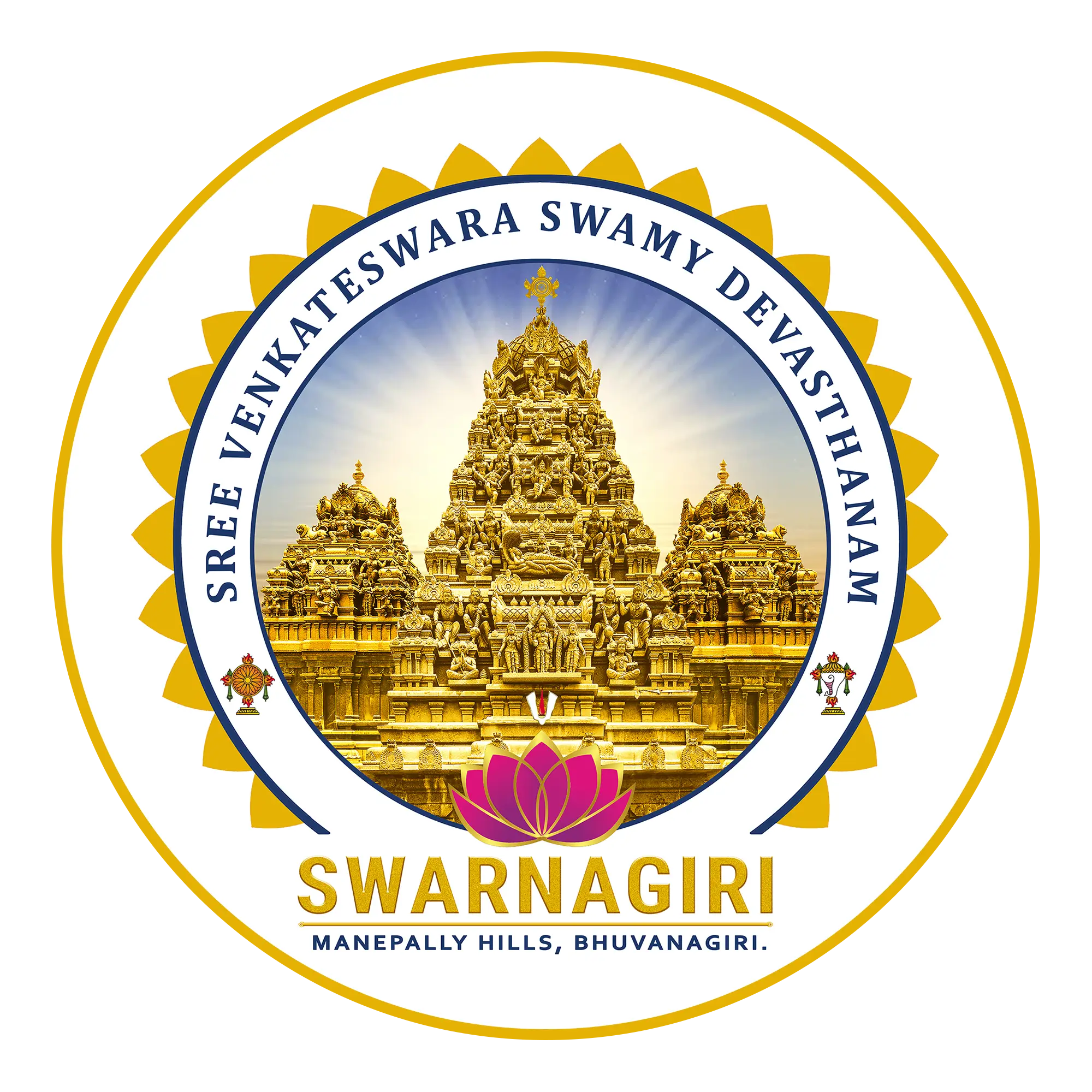
Yadadri Tirumala Devasthanam
Manepally Hills, Bhuvanagiri, Telangana, 508115.

Krishna (/ˈkrɪʃnə/;[12] Sanskrit: कृष्ण IAST: Kṛṣṇa [ˈkr̩ʂɳɐ]) is a major deity in Hinduism. He is worshipped as the eighth avatar of Vishnu and also as the Supreme god in his own right. He is the god of protection, compassion, tenderness, and lve; and is one of the most popular and widely revered among Indian divinities. Krishna's birthday is celebrated every year by Hindus on Krishna Janmashtami according to the lunisolar Hindu calendar, which falls in late August or early September of the Gregorian calendar.
The anecdotes and narratives of Krishna's life are generally titled as Krishna Leela. He is a central character in the Mahabharata, the Bhagavata Purana, the Brahma Vaivarta Purana, and the Bhagavad Gita, and is mentioned in many Hindu philosophical, theological, and mythological texts.[18] They portray him in various perspectives: as a god-child, a prankster, a model lover, a divine hero, and the universal supreme being.[19] His iconography reflects these legends, and shows him in different stages of his life, such as an infant eating butter, a young boy playing a flute, a young boy with Radha or surrounded by female devotees; or a friendly charioteer giving counsel to Arjuna.
The name and synonyms of Krishna have been traced to 1st millennium BCE literature and cults.In some sub-traditions, Krishna is worshipped as Svayam Bhagavan (the Supreme God), and it is sometimes known as Krishnaism. These sub-traditions arose in the context of the medieval era Bhakti movement.Krishna-related literature has inspired numerous performance arts such as Bharatanatyam, Kathakali, Kuchipudi, Odissi, and Manipuri dance. He is a pan-Hindu god, but is particularly revered in some locations, such as Vrindavan in Uttar Pradesh, Dwarka and Junagadh in Gujarat; the Jagannatha aspect in Odisha, Mayapur in West Bengal in the form of Vithoba in Pandharpur, Maharashtra, Shrinathji at Nathdwara in Rajasthan, Udupi Krishna in Karnataka, Parthasarathy in Tamil Nadu and in Aranmula, Kerala, and Guruvayoorappan in Guruvayoor in Kerala.[31] Since the 1960s, the worship of Krishna has also spread to the Western world and to Africa, largely due to the work of the International Society for Krishna Consciousness (ISKCON).
Sri Krishna is the central figure of the Bhagavad Gita. Sri Krishna is widely considered by Hindus to be an Avatar – a direct descent of God. During the Battle of Kurukshetra, Krishna gave Arjuna the immortal spiritual discourse of the Bhagavad Gita – Krishna taught a spiritual path of wisdom, devotion and discrimination. Sri Krishna also popularised devotional bhakti yoga through his time with Radha and the Gopis in Vrindavan.
Sri Krishna said in the opening section of the Bhagavad Gita:
“Whenever, O descendant of Bharata, righteousness declines and unrighteousness prevails, I manifest Myself. For the protection of the righteous and the destruction of the wicked, and for the establishment of religion, I come into being from age to age.”
– Sri Krishna






